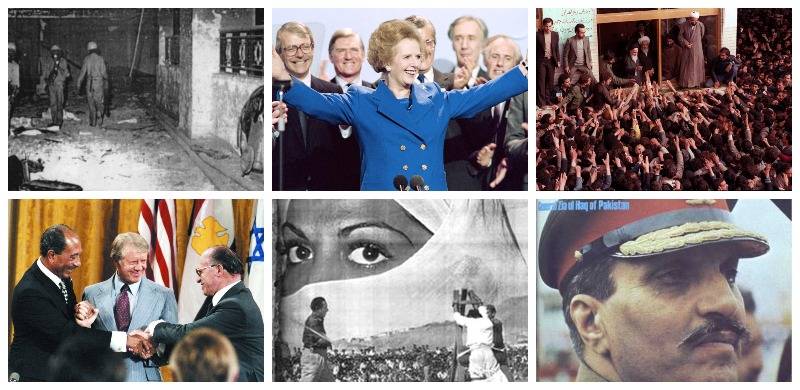
Nadeem F Paracha in this article argues that the world we're living in today is the 'post-1979' world. From the Iranian Revolution to the 'masked confession of the gradual failure of the Keynesian economic policies that had been implemented in the US since the late 1930s', the cataclysmic events of 1979 changed the world completely.
In his 2013 book, 1979 and the Birth of the 21st Century, the American author and journalist, Christian Caryl wrote that the political upheavals of 1979 shaped the world we live in today. But even before Caryl’s study, various political scientists and historians had already come to the same conclusion. Recently, the Lebanese author and former journalist for the BBC, Kim Ghatts, maintained the same view in her book, Black Wave: Saudi Arabia, Iran, and the Forty-Year Rivalry.
However, there have also been those who have identified 1989 and 2001 as the turning-point-years in this context. But as the British historian, Niall Ferguson, in his 2009 article for Newsweek, and the noted British novelist, Ferdinand Mount in his 2013 article for the Australian Financial Review pointed out, the cataclysmic events of 1989 - such as the collapse of Soviet communism and the ‘democratic revolutions’ in Soviet satellite countries in East Europe; and the dramatic terrorist attack by Al Qaeda in New York in 2002 (9/11) – all have their roots in what transpired in the year 1979.
We are thus living in a world that was born 40 years ago. Let’s see what events in 1979 can corroborate this thesis.
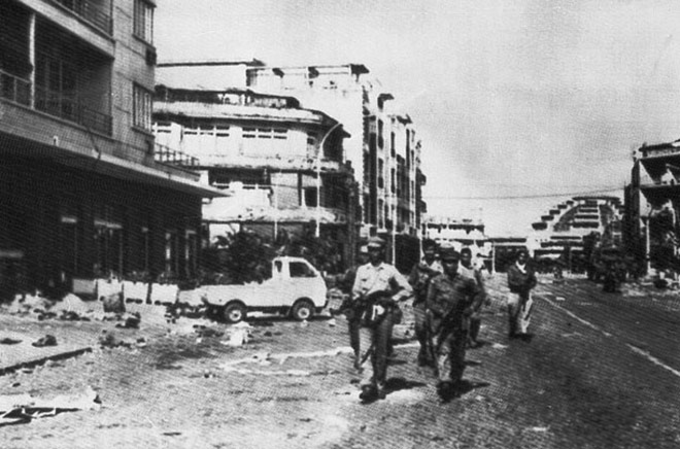
January 1979: The Soviet-backed Vietnamese troops invaded Cambodian capital, Phnom Penh. The fanatical ‘Maoist’ Khmer Rouge regime that had come to power through a China-backed insurgency in 1975 was overthrown. Infamous for their brutality, defeated Khmer militants were pushed back into the jungles and a new pro-Vietnamese government was installed.
Impact: The invasion deepened the Sino-Soviet rift and pushed China further into the anti-Soviet camp dominated by Western countries.
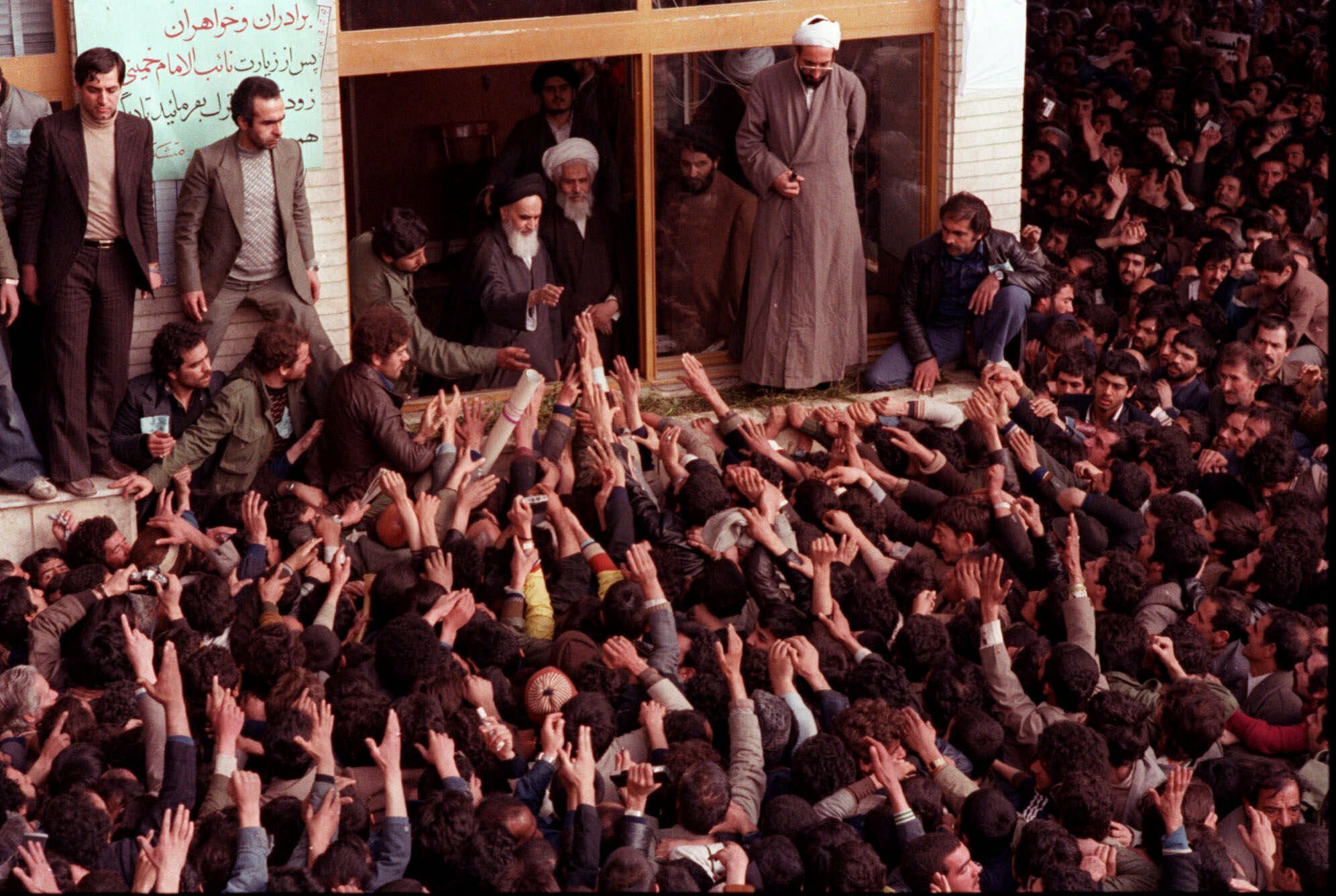
February 1979: Ayatollah Khomeini returned from exile to Iran in the midst of a revolution. The revolution was shaped by a number of anti-Shah forces, such as militant Marxists, secular democrats, nationalists and religious groups. However, Khomeini’s arrival galvanized large sections of Islamist youth and lower-middle-class activists who put Khomeini at the centre of the uprising and hailed him as its dominant figure.
Impact: Iranian Islamists would eventually oust all other stakeholders of the revolution (through executions and arrests). They set up a strict theocracy and a zealously anti-US foreign policy. The regime would also begin to export its ideas by founding and funding Islamist militant groups in the Middle East, thus triggering a vicious cold war between Shia Iran and ‘Wahhabi’ Saudi Arabia.
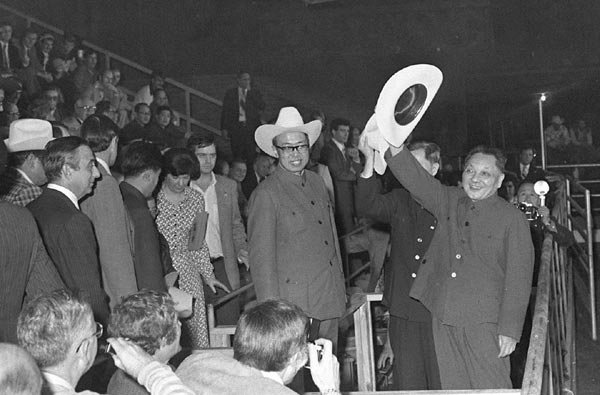
February 1979: Chinese Vice-Premier Deng Xiaoping visited the US, signaling a change of policy in China.
Impact: Deng who was senior member of the ruling Communist Party of China had been humiliatingly sidelined by party chief Mao Tse Tung in the 1960s. He had opposed Mao’s economic and cultural polices. After Mao’s death in 1976, Deng’s stature in the party began to grow. He consolidated China’s relations with the West and began a gradual program of economic liberalization in China. The seeds that he planted would go a long way in transforming China from being an isolated radical communist state into today’s (albeit one-party) economic giant.
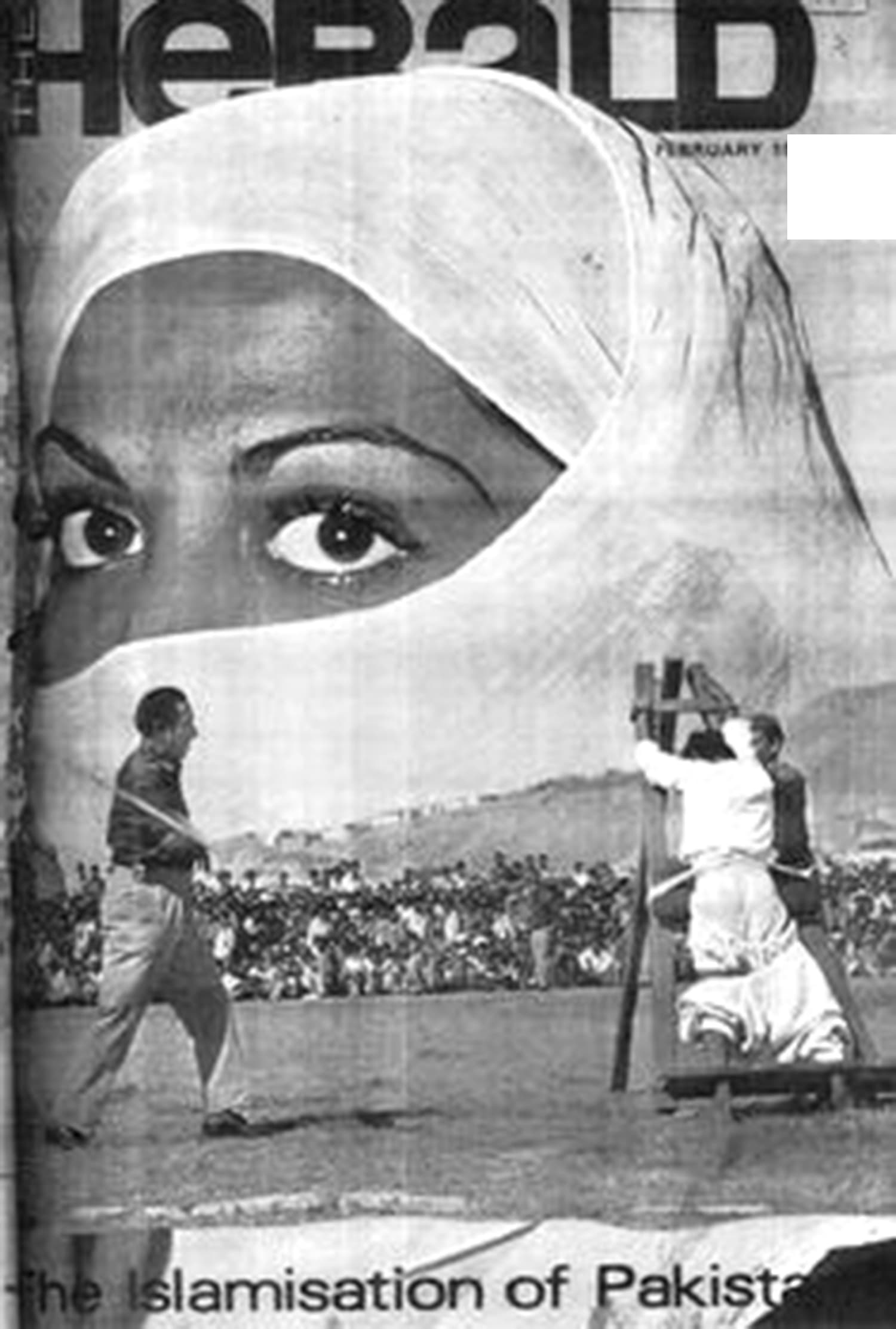
February 1979: The then 3-year-old military dictatorship headed by General Zia-ul-Haq rolled out a series of ‘Hudood Ordinances.’ In an address, Zia claimed the ordinances were to replace laws based on British-era penal codes with laws ‘based on Sharia.’ The ordinances introduced harsh punishments including flogging/whipping, amputation and stoning to death.
Impact: The ordinances opened the floodgates for even harsher laws (in the name of faith) that would play havoc with Pakistan’s political, constitutional, moral and social fabric. The laws would also become weapons in the hands of extremist segments of the polity, helping them move from the fringes to the mainstream.
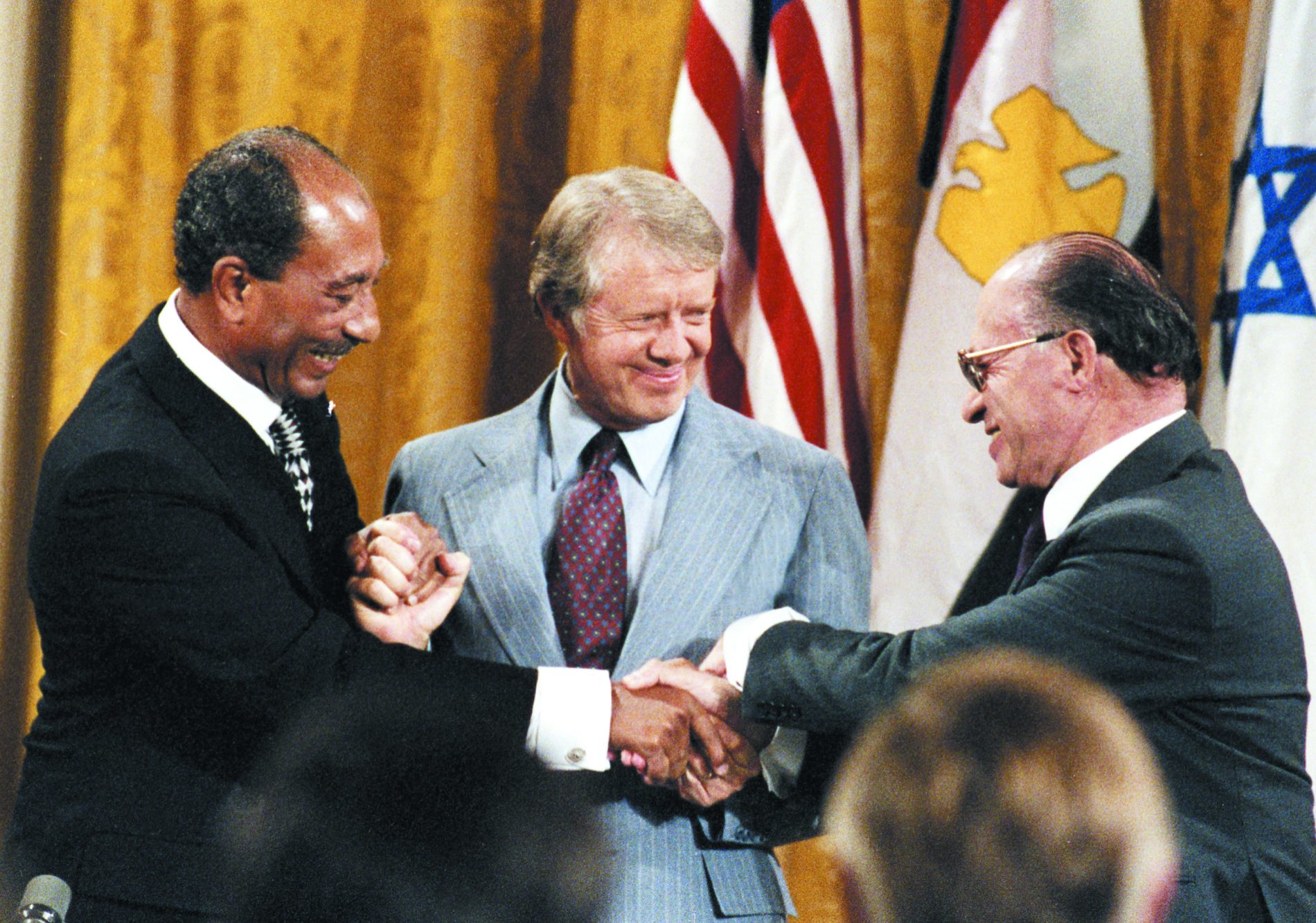
March 1979: Staunch enemies, Egypt and Israel, made peace when Egyptian President Anwar Sadat and Israeli Prime Minister Manachem Begin signed a peace treaty in Washington DC. The meeting was made possible by American President Jimmy Carter. After fighting four wars against Israel, Egypt recognised Israel and both countries opened embassies in Tel Aviv and Cairo respectively. The treaty ended almost 30 years of hostilities between the two countries.
Impact: Egypt, which had been in the ‘Soviet camp’ between the mid-1950s and early 1970s, fully migrated to the ‘American camp.’ The treaty ended hostilities against Israel, but it triggered a bitter reaction within Egypt’s Islamic groups, one of which would assassinate Sadat in 1981. Egypt would also became America’s ‘eyes and ears’ in the Middle East after the fall of the Shah in Iran.
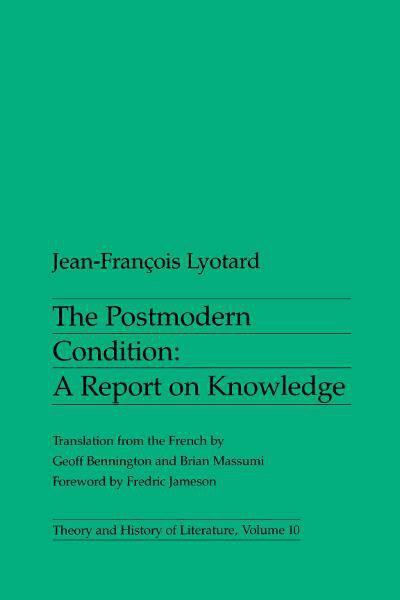
March 1979: The influential book, The Postmodern Condition by the French philosopher, Jean-François Lyotard was published. Lyotand declared that with the rise of ‘post-industrial economy’ and technology, the era of ‘metanarratives’ and/or universal ideas of progress, modernity and civilization formed from the principle concepts of the Age of Enlightenment (such as reason, rationality, science, etc.) and Marxism was over.
Impact: Lyotard’s book spurred an intellectual movement that was developing in France and then the rest of the Western world. As a new intellectual tendency, post-modernism was initially a self-critique of the left. But over the decades, it became a rather deviant excuse to attack science, modernity and reason.
Post-modernism would itself become a metanarrative, providing justification (in the name of ‘local logic’) for the reactionary, and, at times, irrational acts and beliefs of groups across the world.
These included White Supremacists, Hindu nationalists, Islamists and ‘neo-Marxists;’ all of who disregarded science, democracy and even biological make-up of people as ‘social constructs’ of the ‘imperialist West’ to ‘exercise power’ and ‘exploit.’
Ironically, years later, Lyotard confessed that he had a ‘less than limited’ knowledge of the science he wrote about, and to compensate for this knowledge, he ‘made stories up’ and referred to a number of books that he hadn't actually read. In retrospect, he called his book ‘a parody.’
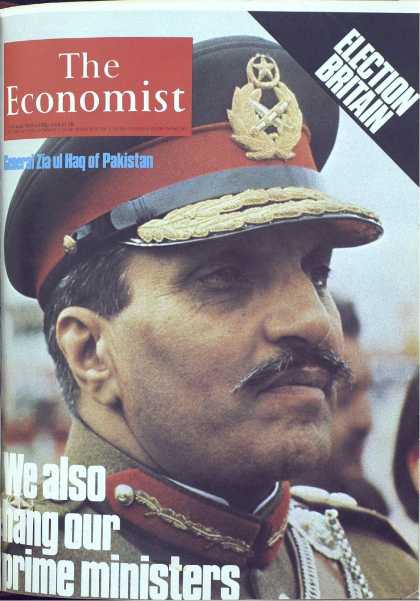
April 1979: The former Prime Minister of Pakistan, Zulfiqar Ali Bhutto was executed by the Gen Zia dictatorship. Bhutto had come to power in December 1971. His regime was toppled in a reactionary military coup in July 1977. In 1978, he was accused by the state of ordering a murder of a political opponent in 1974. Even though the state failed to convincingly argue the case against Bhutto, the courts ordered his execution. His supporters described the execution, as ‘judicial murder.’
Impact: In a country where the tradition was to quietly sideline, retire or send into exile political opponents, the execution introduced the element of bitter vengeance in Pakistani politics. The execution also signaled the end of the line of politics that had emerged from Jinnah’s passing in 1948 and included rulers such as Liaquat Ali Khan, Ayub Khan, Yahya Khan and Bhutto. From April 1979, a new political paradigm would emerge that will largely be the product of the legacy of Zia’s dictatorship.
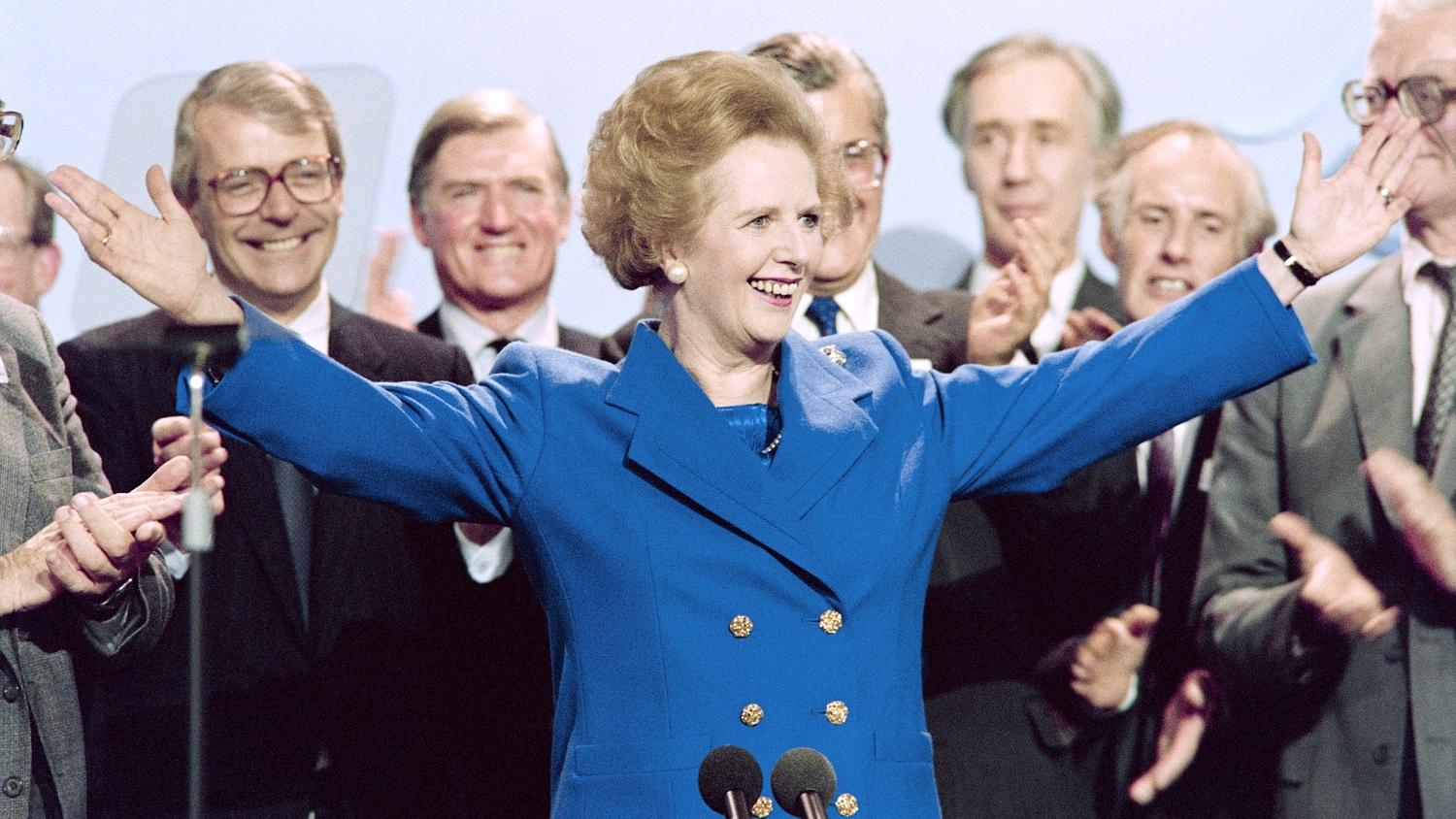
May 1979: The Conservative Party (CP) demolished the Labour Party in 1979’s parliamentary election in Britain. CP leader, Margaret Thatcher was elected as Britain’s new Prime Minister.
Impact: Thatcher would go on to win two more terms and almost completely erase the idea of the welfare state in Britain through privatization, deregulation, income tax cuts, reduction in social security benefits and the crushing of trade unions. She became first of the prominent ‘neo-con’ heads of government in the West.
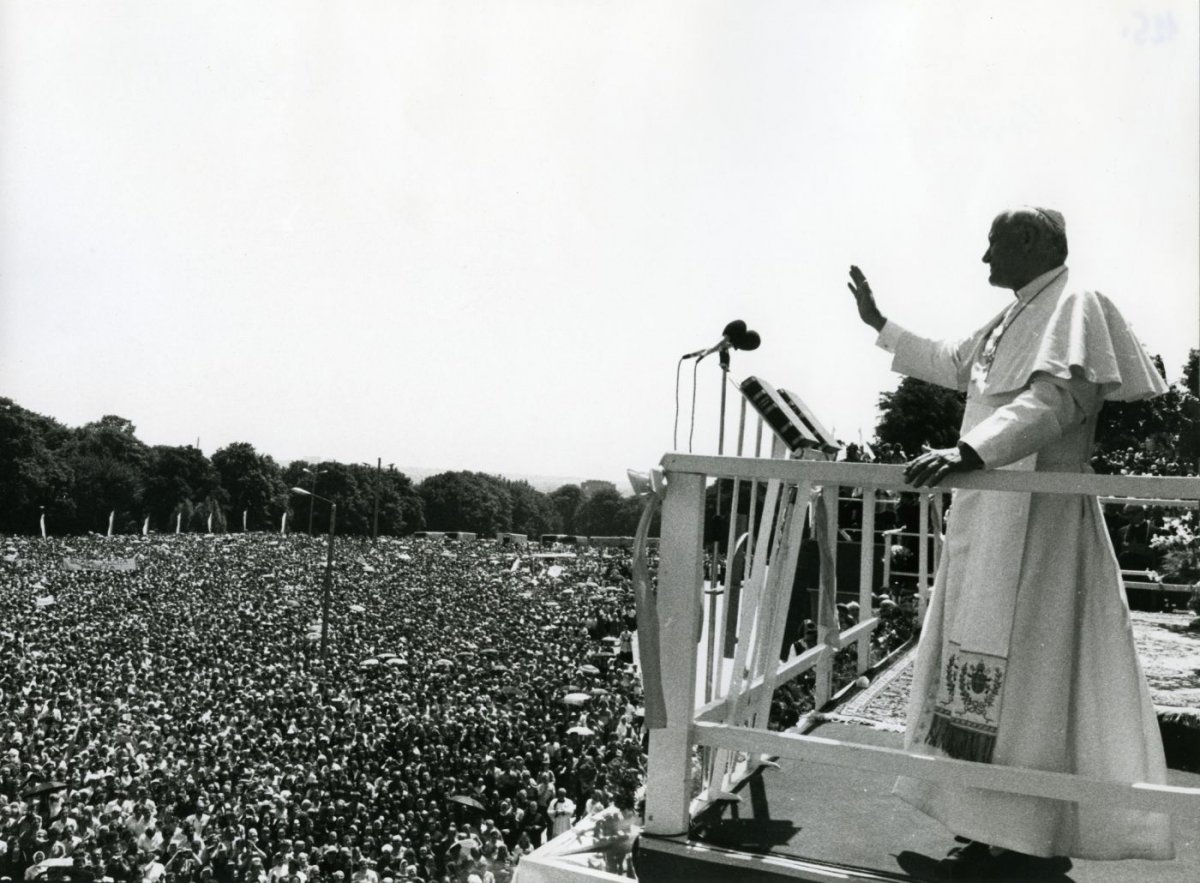
June 1979: Pope John Paul II visited Poland. He became the first Pope to be allowed to visit a communist country.
Impact: Even though Poland’s communist regime tried to exhibit its ‘good intentions’ in allowing the head of the global Catholic faith to visit the country, the Pope’s visit became the trigger behind the creation of an anti-communist movement in Poland. The movement would give birth to Solidarity in 1981, a large anti-communist and Catholic union that would eventually go on to topple Poland’s communist regime in 1989.

In 1979 the Dutch government amended the country’s drug laws to ‘tolerate’ the sale of marijuana and cannabis. As drug use spiked in Europe from the late 1960s, the Dutch government (in 1972) decided to concentrate in prosecuting the sale and use of hard drugs only (especially heroin).
In 1975, a ‘coffee shop’ in Amsterdam (Bulldog) was cautiously allowed to sell cannabis over the counter. In 1979, the country’s Drug Laws were amended and published and this saw the rapid growth of coffee shops in Amsterdam being allowed to sell marijuana and cannabis.
Impact: Decades later, encouraged by the success of Dutch laws in this respect, various European countries and states in the US and Canada have decriminalized marijuana. Some have even legalized it.

July 1979: Sony introduced the Sony Walkman – the first ever personal portable stereo cassette player.
Impact: The Walkman radically changed the music-listening habits of the people. They could now do so while on the move. This new habit would go on to inform the creation of future and today’s personalized digital players.
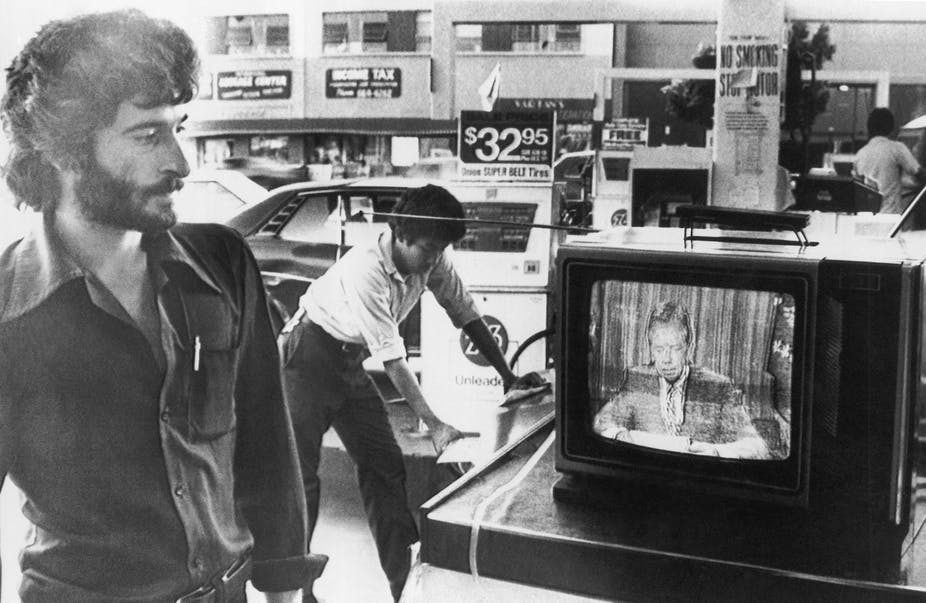
June 1979: American President Jimmy Carter addressed the nation and confessed that the United States was facing serious economic and social crises.
Impact: Experts believe that Carter’s address was a masked confession of the gradual failure of the Keynesian economic policies that had been implemented in the US since the late 1930s. The policies had called for greater economic management and intervention by the government and increased government spending on social and economic programs.
This model came under duress after the 1973 ‘oil crisis’. When Ronald Regan was elected as the new US President in late 1980. He, like Margret Thatcher, rapidly rolled back this model and became the second leading neo-con leader in the Western world. Thatcher and Reagan’s examples will eventually influence the economic policies of various other countries.
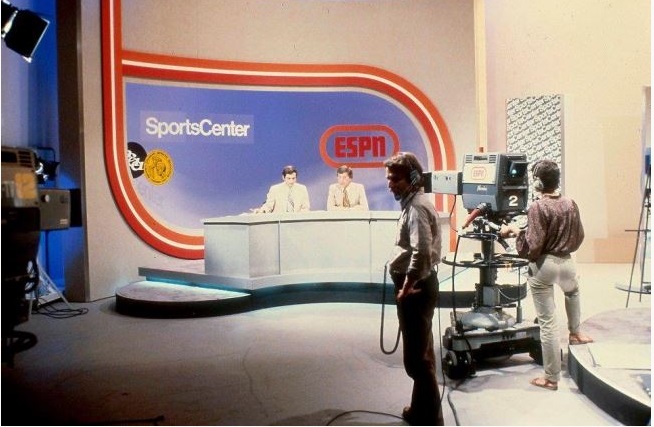
September 1979: The first-ever sports cable channel (ESPN) is launched in a single-room studio. From being an obscure channel, it soon grew into becoming one of the most-viewed sports channels in the US and then the world.
Impact: Hot on the heels of ESPN’s success, numerous other cable sports channels began to come up and have today are a norm.

The VCR arrived in Pakistan in 1979. Even though VCRs had gone on sale in Europe, the United States and Japan in 1969/1970, their growth and sales were extremely slow. However, the sales picked up after 1972. In 1979, VCRs were being smuggled into Pakistan.
Impact: The VCR changed the people’s viewing habits. During the Gen Zia regime, TV and films suffered severe censorship. The country’s once thriving Urdu film industry had begun to wither away as well. With the VCR also came Indian films recorded on video cassettes and illegally provided to homes on rent. Indian films had been banned in Pakistan in 1965.
It would take more than two decades for Pakistanis to start visiting cinemas again. But ironically, it were Indian films that revived the trend when the Pervez Musharraf regime (1999-2008) lifted the ban on Bollywood films.
However, Indian films were banned again in 2019. So most Pakistanis have gone back to watching them at home through streaming sites – a digital legacy of the analogue VCR days.
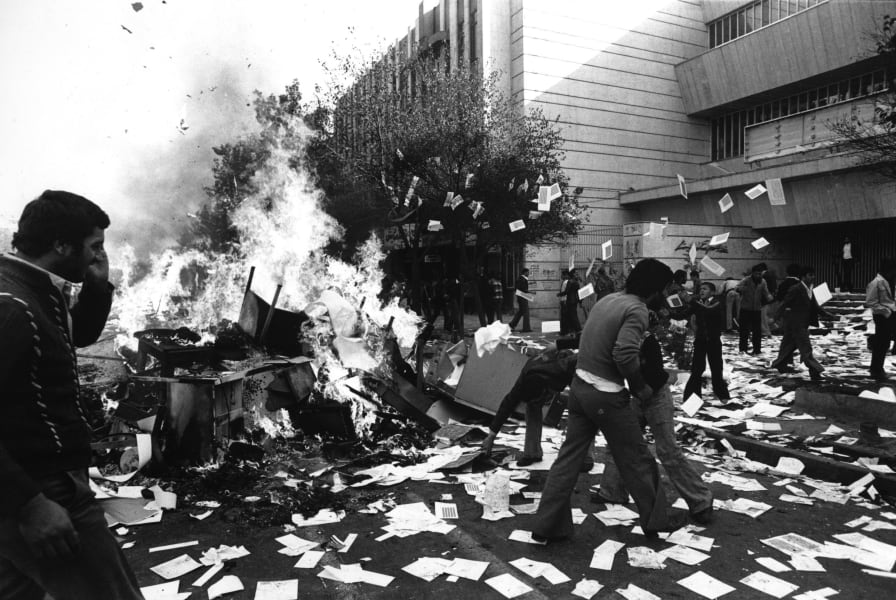
November 1979: Iranian students stormed the US embassy in Iran and took hostage 52 American hostages. Khomeini hailed the action and asked Iranians to attack US interests. The crisis lasted 444 days and cost Jimmy Carter his presidency.
Impact: Not only did the crisis almost completely divorced Iran’s relations with the US, it rapidly radicalized the Iranian state.
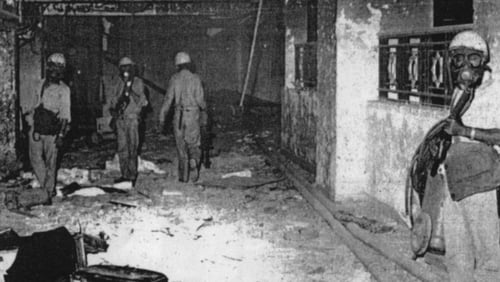
November 1979: A large group of Saudi Islamist militants stormed the Grand Mosque in Makkah and took hostage hundreds of pilgrims. They were heavily armed and one of them claimed to be the mythical redeemer, Mehdi. They were protesting against modernization and ‘westernization’ in Saudi Arabia. The siege lasted for 14 days and dozens of Saudi soldiers and militants were killed. The mosque was completely destroyed. The surviving militants were beheaded.
Impact: The Saudi monarchy swiftly began to rollback modernization policies in the Kingdom and enacted strict laws. It also greatly empowered ‘Wahhabi’ religious figureheads and began competing with Iran as to which of the two countries was ‘more Islamic.’ The attack would go on to inspire future Saudi militants, including one Osama Bin Laden.
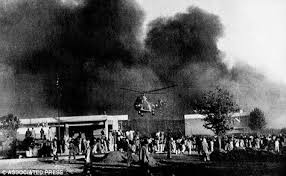
November 1979: During the attack on Makkah, Iranian official radio announced that the Grand Mosque had been attacked by the Americans. This false claim enraged large sections of Pakistanis. Groups of right-wing and some left-wing student groups began to protest outside the US embassy in Islamabad. The protest became a mob and stormed the embassy. Two Americans and two Pakistanis were killed.
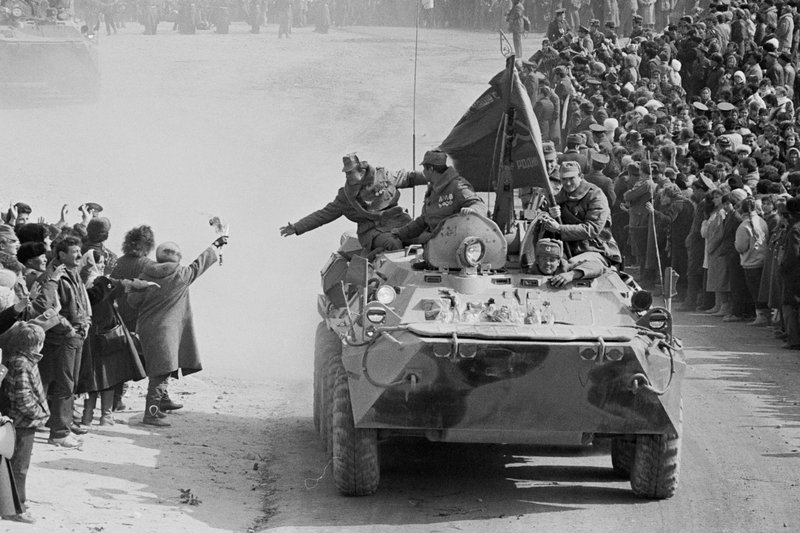
December 1979: Soviet troops invaded Afghanistan.
Impact: Perhaps the most significant and impactful event of the year. After a 1978 communist coup in Afghanistan created infighting between the country’s two main communist factions, Parcham and Khalq, the Soviet Union – that was supporting both – invaded Afghanistan.
It deposed the radical and controversial Hafizullah Amin of the Khalq faction and replaced him with the more moderate Babrak Karmal of the Parcham faction.
Soviet troops soon ran into trouble when the US saw this as an opportunity to turn Afghanistan into ‘Soviet Union’s Vietnam.’ Billions of dollars would be provided to Pakistan’s dictator Gen Zia by the US and Saudi Arabia to train, indoctrinate and facilitate anti-Soviet Afghan insurgents in the name of ‘Islam’ and ‘Jihad.’
The civil war in Afghanistan still rages on, but between ever-changing foes. The political impact of Pakistan’s role in it can still be felt in the shape of extremist groups, terrorism, sectarianism and dubious foreign policy maneuvers. The civil war also brought radicalization in various other Muslim countries and the creation of the so-called ‘Kalashnikov culture’ in Pakistan.
In his 2013 book, 1979 and the Birth of the 21st Century, the American author and journalist, Christian Caryl wrote that the political upheavals of 1979 shaped the world we live in today. But even before Caryl’s study, various political scientists and historians had already come to the same conclusion. Recently, the Lebanese author and former journalist for the BBC, Kim Ghatts, maintained the same view in her book, Black Wave: Saudi Arabia, Iran, and the Forty-Year Rivalry.
However, there have also been those who have identified 1989 and 2001 as the turning-point-years in this context. But as the British historian, Niall Ferguson, in his 2009 article for Newsweek, and the noted British novelist, Ferdinand Mount in his 2013 article for the Australian Financial Review pointed out, the cataclysmic events of 1989 - such as the collapse of Soviet communism and the ‘democratic revolutions’ in Soviet satellite countries in East Europe; and the dramatic terrorist attack by Al Qaeda in New York in 2002 (9/11) – all have their roots in what transpired in the year 1979.
We are thus living in a world that was born 40 years ago. Let’s see what events in 1979 can corroborate this thesis.

January 1979: The Soviet-backed Vietnamese troops invaded Cambodian capital, Phnom Penh. The fanatical ‘Maoist’ Khmer Rouge regime that had come to power through a China-backed insurgency in 1975 was overthrown. Infamous for their brutality, defeated Khmer militants were pushed back into the jungles and a new pro-Vietnamese government was installed.
Impact: The invasion deepened the Sino-Soviet rift and pushed China further into the anti-Soviet camp dominated by Western countries.

February 1979: Ayatollah Khomeini returned from exile to Iran in the midst of a revolution. The revolution was shaped by a number of anti-Shah forces, such as militant Marxists, secular democrats, nationalists and religious groups. However, Khomeini’s arrival galvanized large sections of Islamist youth and lower-middle-class activists who put Khomeini at the centre of the uprising and hailed him as its dominant figure.
Impact: Iranian Islamists would eventually oust all other stakeholders of the revolution (through executions and arrests). They set up a strict theocracy and a zealously anti-US foreign policy. The regime would also begin to export its ideas by founding and funding Islamist militant groups in the Middle East, thus triggering a vicious cold war between Shia Iran and ‘Wahhabi’ Saudi Arabia.

February 1979: Chinese Vice-Premier Deng Xiaoping visited the US, signaling a change of policy in China.
Impact: Deng who was senior member of the ruling Communist Party of China had been humiliatingly sidelined by party chief Mao Tse Tung in the 1960s. He had opposed Mao’s economic and cultural polices. After Mao’s death in 1976, Deng’s stature in the party began to grow. He consolidated China’s relations with the West and began a gradual program of economic liberalization in China. The seeds that he planted would go a long way in transforming China from being an isolated radical communist state into today’s (albeit one-party) economic giant.

February 1979: The then 3-year-old military dictatorship headed by General Zia-ul-Haq rolled out a series of ‘Hudood Ordinances.’ In an address, Zia claimed the ordinances were to replace laws based on British-era penal codes with laws ‘based on Sharia.’ The ordinances introduced harsh punishments including flogging/whipping, amputation and stoning to death.
Impact: The ordinances opened the floodgates for even harsher laws (in the name of faith) that would play havoc with Pakistan’s political, constitutional, moral and social fabric. The laws would also become weapons in the hands of extremist segments of the polity, helping them move from the fringes to the mainstream.

March 1979: Staunch enemies, Egypt and Israel, made peace when Egyptian President Anwar Sadat and Israeli Prime Minister Manachem Begin signed a peace treaty in Washington DC. The meeting was made possible by American President Jimmy Carter. After fighting four wars against Israel, Egypt recognised Israel and both countries opened embassies in Tel Aviv and Cairo respectively. The treaty ended almost 30 years of hostilities between the two countries.
Impact: Egypt, which had been in the ‘Soviet camp’ between the mid-1950s and early 1970s, fully migrated to the ‘American camp.’ The treaty ended hostilities against Israel, but it triggered a bitter reaction within Egypt’s Islamic groups, one of which would assassinate Sadat in 1981. Egypt would also became America’s ‘eyes and ears’ in the Middle East after the fall of the Shah in Iran.

March 1979: The influential book, The Postmodern Condition by the French philosopher, Jean-François Lyotard was published. Lyotand declared that with the rise of ‘post-industrial economy’ and technology, the era of ‘metanarratives’ and/or universal ideas of progress, modernity and civilization formed from the principle concepts of the Age of Enlightenment (such as reason, rationality, science, etc.) and Marxism was over.
Impact: Lyotard’s book spurred an intellectual movement that was developing in France and then the rest of the Western world. As a new intellectual tendency, post-modernism was initially a self-critique of the left. But over the decades, it became a rather deviant excuse to attack science, modernity and reason.
Post-modernism would itself become a metanarrative, providing justification (in the name of ‘local logic’) for the reactionary, and, at times, irrational acts and beliefs of groups across the world.
These included White Supremacists, Hindu nationalists, Islamists and ‘neo-Marxists;’ all of who disregarded science, democracy and even biological make-up of people as ‘social constructs’ of the ‘imperialist West’ to ‘exercise power’ and ‘exploit.’
Ironically, years later, Lyotard confessed that he had a ‘less than limited’ knowledge of the science he wrote about, and to compensate for this knowledge, he ‘made stories up’ and referred to a number of books that he hadn't actually read. In retrospect, he called his book ‘a parody.’

April 1979: The former Prime Minister of Pakistan, Zulfiqar Ali Bhutto was executed by the Gen Zia dictatorship. Bhutto had come to power in December 1971. His regime was toppled in a reactionary military coup in July 1977. In 1978, he was accused by the state of ordering a murder of a political opponent in 1974. Even though the state failed to convincingly argue the case against Bhutto, the courts ordered his execution. His supporters described the execution, as ‘judicial murder.’
Impact: In a country where the tradition was to quietly sideline, retire or send into exile political opponents, the execution introduced the element of bitter vengeance in Pakistani politics. The execution also signaled the end of the line of politics that had emerged from Jinnah’s passing in 1948 and included rulers such as Liaquat Ali Khan, Ayub Khan, Yahya Khan and Bhutto. From April 1979, a new political paradigm would emerge that will largely be the product of the legacy of Zia’s dictatorship.

May 1979: The Conservative Party (CP) demolished the Labour Party in 1979’s parliamentary election in Britain. CP leader, Margaret Thatcher was elected as Britain’s new Prime Minister.
Impact: Thatcher would go on to win two more terms and almost completely erase the idea of the welfare state in Britain through privatization, deregulation, income tax cuts, reduction in social security benefits and the crushing of trade unions. She became first of the prominent ‘neo-con’ heads of government in the West.

June 1979: Pope John Paul II visited Poland. He became the first Pope to be allowed to visit a communist country.
Impact: Even though Poland’s communist regime tried to exhibit its ‘good intentions’ in allowing the head of the global Catholic faith to visit the country, the Pope’s visit became the trigger behind the creation of an anti-communist movement in Poland. The movement would give birth to Solidarity in 1981, a large anti-communist and Catholic union that would eventually go on to topple Poland’s communist regime in 1989.

In 1979 the Dutch government amended the country’s drug laws to ‘tolerate’ the sale of marijuana and cannabis. As drug use spiked in Europe from the late 1960s, the Dutch government (in 1972) decided to concentrate in prosecuting the sale and use of hard drugs only (especially heroin).
In 1975, a ‘coffee shop’ in Amsterdam (Bulldog) was cautiously allowed to sell cannabis over the counter. In 1979, the country’s Drug Laws were amended and published and this saw the rapid growth of coffee shops in Amsterdam being allowed to sell marijuana and cannabis.
Impact: Decades later, encouraged by the success of Dutch laws in this respect, various European countries and states in the US and Canada have decriminalized marijuana. Some have even legalized it.

July 1979: Sony introduced the Sony Walkman – the first ever personal portable stereo cassette player.
Impact: The Walkman radically changed the music-listening habits of the people. They could now do so while on the move. This new habit would go on to inform the creation of future and today’s personalized digital players.

June 1979: American President Jimmy Carter addressed the nation and confessed that the United States was facing serious economic and social crises.
Impact: Experts believe that Carter’s address was a masked confession of the gradual failure of the Keynesian economic policies that had been implemented in the US since the late 1930s. The policies had called for greater economic management and intervention by the government and increased government spending on social and economic programs.
This model came under duress after the 1973 ‘oil crisis’. When Ronald Regan was elected as the new US President in late 1980. He, like Margret Thatcher, rapidly rolled back this model and became the second leading neo-con leader in the Western world. Thatcher and Reagan’s examples will eventually influence the economic policies of various other countries.

September 1979: The first-ever sports cable channel (ESPN) is launched in a single-room studio. From being an obscure channel, it soon grew into becoming one of the most-viewed sports channels in the US and then the world.
Impact: Hot on the heels of ESPN’s success, numerous other cable sports channels began to come up and have today are a norm.

The VCR arrived in Pakistan in 1979. Even though VCRs had gone on sale in Europe, the United States and Japan in 1969/1970, their growth and sales were extremely slow. However, the sales picked up after 1972. In 1979, VCRs were being smuggled into Pakistan.
Impact: The VCR changed the people’s viewing habits. During the Gen Zia regime, TV and films suffered severe censorship. The country’s once thriving Urdu film industry had begun to wither away as well. With the VCR also came Indian films recorded on video cassettes and illegally provided to homes on rent. Indian films had been banned in Pakistan in 1965.
It would take more than two decades for Pakistanis to start visiting cinemas again. But ironically, it were Indian films that revived the trend when the Pervez Musharraf regime (1999-2008) lifted the ban on Bollywood films.
However, Indian films were banned again in 2019. So most Pakistanis have gone back to watching them at home through streaming sites – a digital legacy of the analogue VCR days.

November 1979: Iranian students stormed the US embassy in Iran and took hostage 52 American hostages. Khomeini hailed the action and asked Iranians to attack US interests. The crisis lasted 444 days and cost Jimmy Carter his presidency.
Impact: Not only did the crisis almost completely divorced Iran’s relations with the US, it rapidly radicalized the Iranian state.

November 1979: A large group of Saudi Islamist militants stormed the Grand Mosque in Makkah and took hostage hundreds of pilgrims. They were heavily armed and one of them claimed to be the mythical redeemer, Mehdi. They were protesting against modernization and ‘westernization’ in Saudi Arabia. The siege lasted for 14 days and dozens of Saudi soldiers and militants were killed. The mosque was completely destroyed. The surviving militants were beheaded.
Impact: The Saudi monarchy swiftly began to rollback modernization policies in the Kingdom and enacted strict laws. It also greatly empowered ‘Wahhabi’ religious figureheads and began competing with Iran as to which of the two countries was ‘more Islamic.’ The attack would go on to inspire future Saudi militants, including one Osama Bin Laden.

November 1979: During the attack on Makkah, Iranian official radio announced that the Grand Mosque had been attacked by the Americans. This false claim enraged large sections of Pakistanis. Groups of right-wing and some left-wing student groups began to protest outside the US embassy in Islamabad. The protest became a mob and stormed the embassy. Two Americans and two Pakistanis were killed.

December 1979: Soviet troops invaded Afghanistan.
Impact: Perhaps the most significant and impactful event of the year. After a 1978 communist coup in Afghanistan created infighting between the country’s two main communist factions, Parcham and Khalq, the Soviet Union – that was supporting both – invaded Afghanistan.
It deposed the radical and controversial Hafizullah Amin of the Khalq faction and replaced him with the more moderate Babrak Karmal of the Parcham faction.
Soviet troops soon ran into trouble when the US saw this as an opportunity to turn Afghanistan into ‘Soviet Union’s Vietnam.’ Billions of dollars would be provided to Pakistan’s dictator Gen Zia by the US and Saudi Arabia to train, indoctrinate and facilitate anti-Soviet Afghan insurgents in the name of ‘Islam’ and ‘Jihad.’
The civil war in Afghanistan still rages on, but between ever-changing foes. The political impact of Pakistan’s role in it can still be felt in the shape of extremist groups, terrorism, sectarianism and dubious foreign policy maneuvers. The civil war also brought radicalization in various other Muslim countries and the creation of the so-called ‘Kalashnikov culture’ in Pakistan.
